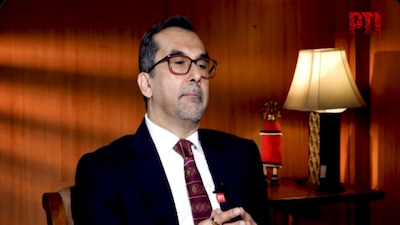The controversy surrounding long work hours has recently gained momentum with statements from business leaders such as SN Subrahmanyan, Chairman and Managing Director of Larsen & Toubro Ltd, advocating for a 90-hour workweek. In contrast, ITC Ltd Chairman Sanjiv Puri has offered a different perspective, emphasising that alignment with the company’s vision and passion for the work is more crucial than the number of hours employees put in.
Vision Over Hours: Sanjiv Puri’s Philosophy
In a recent interview with PTI, Puri highlighted that for employees at ITC, it’s about being part of a grand journey rather than focusing on the specifics of work hours. He used the analogy of workers building a castle, where each worker may view their task differently—some might say they’re laying bricks, others might describe themselves as building walls, but the ultimate goal is for all to understand they are building a castle.
Asked if he is saying that mean if he would rather not put a number to the work hours at ITC, he said, “We would not do that. We would rather like people to be part of the journey and feel passionately involved,” Puri said, explaining that employees should be driven by the purpose and vision of the company. He made it clear that ITC does not focus on monitoring individual hours, instead fostering an environment where employees are empowered to make a difference and actualise their potential.
Also Read Outrage over L&T chief’s hard work advice Half the Indians are overworked. Can they push it? L&T Chairman wants 90hr work week for employees but gets 535 times their salary, his salary is… Why L&T Chairman’s 90 hour work-week advice will ruin your health: A WHO caution Also ReadL&T’s HR steps in to clear the air over chairman Subrahmanyan’s controversial 90 hours workweek remarks – Here’s what she said
A Flexible Work Environment at ITC
One of the key aspects of ITC’s approach is the flexibility it offers its employees. Puri shared that the company allows a flexible work environment, including the option to work from home for two days a week. This flexibility is part of a broader philosophy of supporting employees’ personal well-being and professional growth without the emphasis on strict work schedules.
“It’s not so much about really monitoring each individual’s number of hours.
» Read More


